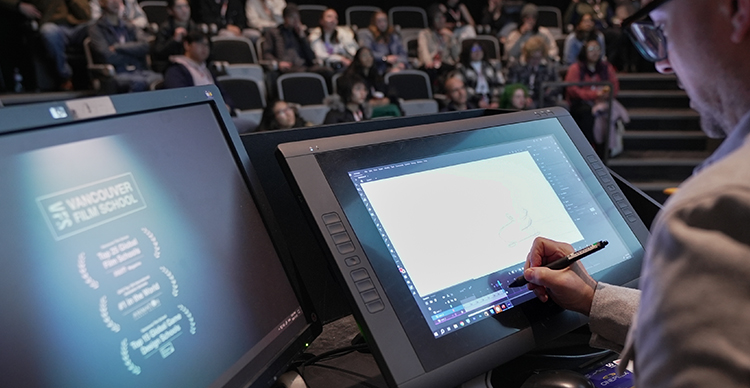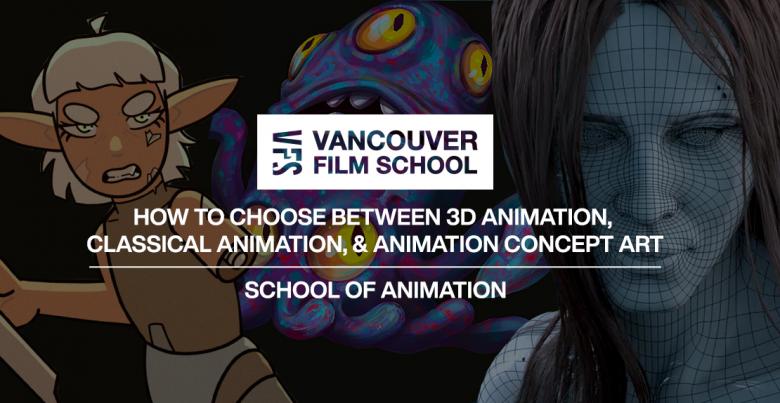Key Takeaways
- Vancouver Film School offers three specialized animation programs: 3D Animation & Visual Effects, Classical Animation, and Animation Concept Art with distinct career outcomes.
- Students create professional-quality portfolios and demo reels that showcase their specific animation skills through intensive 3D animation courses and traditional techniques.
- VFS animation programs provide hands-on experience in simulated studio environments with industry-standard equipment and software.
- Industry professionals teach all animation courses at Vancouver Film School, bringing current trends and techniques directly to students.
Selecting the right animation program can significantly impact your creative journey and career prospects in the animation industry. Vancouver Film School offers three distinct animation programs that cater to different artistic strengths and career aspirations. VFS designs our animation programs to provide intensive, industry-focused training that prepares students for successful careers in just one year. According to Animation Career Review, VFS ranks as one of the top animation schools globally, offering students comprehensive classical animation training alongside cutting-edge digital techniques. Vancouver Film School structures each animation program to immerse students in a professional studio environment while developing their unique creative voices.
INDUSTRY PROFESSIONALS SHAPE THE ANIMATION CURRICULUM AT VANCOUVER FILM SCHOOL
Vancouver Film School recruits veteran instructors directly from the animation industry to ensure students learn current, professional techniques and standards. We constantly updates our animation curriculum to reflect evolving industry demands, with faculty members bringing decades of production experience from major studios like Disney, Pixar, and local Vancouver animation powerhouses. VFS’s unique educational model balances intensive theory with hands-on production experience, allowing students to develop professional-caliber skills in just 12 months under the guidance of award-winning mentors.
Faculty Members Bring Real-World Experience into the Classroom
Animation instructors at Vancouver Film School possess extensive industry credentials, including work on major feature films, television series, and games that students aspire to create. These experienced professionals provide students with invaluable feedback throughout their studies, offering technical guidance and creative direction based on actual production standards and expectations. Faculty members serve as mentors who share their production experiences and industry connections, helping students understand both the artistic and business aspects of animation careers.
Key Differences Between VFS’s Animation Programs
- 3D Animation & Visual Effects focuses on computer-generated animation, modeling, and visual effects for film and games.
- Classical Animation emphasizes traditional hand-drawn animation techniques and storytelling through 2D animation.
- Animation Concept Art develops skills in visual development, character design, and world-building for animation projects.
- 3D Animation offers specializations in animation, modeling, or visual effects during the program.
- Classical Animation trains students in drawing fundamentals, character animation, and digital tools for 2D animation.
- Animation Concept Art focuses on creating the visual language and aesthetic for animation productions.
- All three programs culminate in industry-ready portfolios showcasing each student's unique skills and specialization.
CREATING A PROFESSIONAL ANIMATION PORTFOLIO IS ESSENTIAL FOR CAREER SUCCESS
Professional animation portfolios serve as the primary tool for showcasing your skills and landing jobs in the competitive animation industry. Vancouver Film School structures our animation programs to help students develop comprehensive portfolios or demo reels that highlight their technical abilities, creative vision, and specialized skills. Animation employers look for portfolios that demonstrate a solid understanding of animation principles, technical proficiency, and a unique creative perspective, which is why VFS’s Digital Design and animation courses prioritize portfolio development throughout the entire program.
Demo Reels and Animation Concept Art Portfolios Showcase Your Unique Skills
Effective animation demo reels typically run between 60-90 seconds, showcasing only your strongest work that represents your animation specialization and technical abilities. A diverse portfolio might include character animations, environments, visual effects work, or concept art depending on your specialization, with each piece demonstrating different skills and techniques relevant to your career goals. Professional animators regularly update their portfolios after graduation to incorporate new skills and techniques, with VFS alumni gaining access to lifetime career support through VFS’s industry-standard animation software training.
 Colin Giles, VFS’s Head of Animation, leads a lecture to a group of animation students.
Colin Giles, VFS’s Head of Animation, leads a lecture to a group of animation students.VANCOUVER FILM SCHOOL’S ANIMATION PROGRAMS PROVIDE HANDS-ON PRODUCTION EXPERIENCE
VFS animation programs immerse students in practical, production-focused training that mirrors professional studio workflows and processes. Students spend approximately 70% of their time engaged in hands-on production work, developing technical skills through daily practical exercises and increasingly complex animation projects. Throughout their studies, animation students at Vancouver Film School complete numerous projects including character animations, environmental designs, and culminating final projects that form the foundation of their professional portfolios.
Students Create Professional-Quality Work in Simulated Studio Environments
Vancouver Film School maintains a 42,000 square-foot Animation Campus equipped with professional-grade animation studios, computer labs, and specialized spaces like a custom-built life drawing theatre. The production environment at VFS closely replicates actual animation studios, with structured production pipelines, regular critique sessions, and industry-standard project management practices that prepare students for professional expectations. Animation students gain proficiency in industry-standard software including Autodesk Maya, Adobe Creative Suite, ToonBoom Harmony, ZBrush, and other specialized tools through dedicated specialization tracks in 3D modeling, animation, and visual effects.
ARTISTS BUILD STRONG INDUSTRY CONNECTIONS THROUGHT THEIR ANIMATION EDUCATION
Vancouver Film School facilitates valuable industry networking through regular guest lectures, portfolio reviews, and industry events where students present their work to potential employers. VFS animation graduates have secured positions at leading studios including Disney, Pixar, Industrial Light & Magic, Sony Pictures Imageworks, and numerous Vancouver-based studios that form part of the city's thriving animation sector. The school maintains strong relationships with animation studios through our industry partnerships, advisory board members, and continuous engagement with the professional animation community.
Program Alumni Work at Top Animation Studios Around the World
VFS animation graduates have contributed to major films and games, including blockbuster productions like Avatar, The Mandalorian, Spider-Man: Across the Spider-Verse, and God of War. Animation program graduates typically start in junior positions such as junior animators, concept artists, modelers, texture artists, or visual development artists, with career advancement opportunities based on their specialization and portfolio development. Vancouver Film School's extensive alumni network serves as an invaluable resource for current students, with graduates often returning as guest speakers, mentors, and even employers who recruit from VFS animation and design programs.
ANIMATION PROGRAM SPECIALIZATIONS ALLOW STUDENTS TO FOCUS THEIR CREATIVE DIRECTION
Vancouver Film School offers distinct specialization paths within our animation programs to help students develop focused expertise in their areas of interest. Our 3D Animation & Visual Effects program allows students to specialize in animation, modeling, or visual effects during their final terms, enabling them to create more specialized and impressive portfolio pieces. Students choose between these programs based on their artistic preferences, career goals, and technical inclinations. Classical Animation appeals to those who love traditional drawing and storytelling, while Animation Concept Art attracts students passionate about designing characters, environments, and visual development.
Choosing Between Character Animation, Visual Effects, and Concept Art Pathways
Each animation specialization opens doors to different career opportunities, with character animators finding work in film, television, and games; visual effects specialists working in film and commercial production; and concept artists contributing to pre-production for animated features, games, and television series. Industry demand fluctuates between specializations, but VFS responds to these trends by adjusting our curriculum and maintaining strong industry advisory relationships to ensure graduates possess relevant, in-demand skills. The various animation disciplines complement each other in production pipelines – concept artists establish the visual foundation, animators bring characters to life, and visual effects artists enhance the final product – which is why Vancouver Film School provides foundational training across multiple animation disciplines.
Vancouver Film School prepares animation students for successful careers through intensive, industry-focused programs that develop both technical skills and artistic vision. Students benefit from VFS's stellar reputation in the animation industry, with employers recognizing the quality of training and production experience graduates receive. For those considering a career in animation, VFS offers comprehensive student support services that help students navigate their educational journey from application to graduation and beyond, ensuring they're well-positioned to enter this exciting and evolving creative field.
